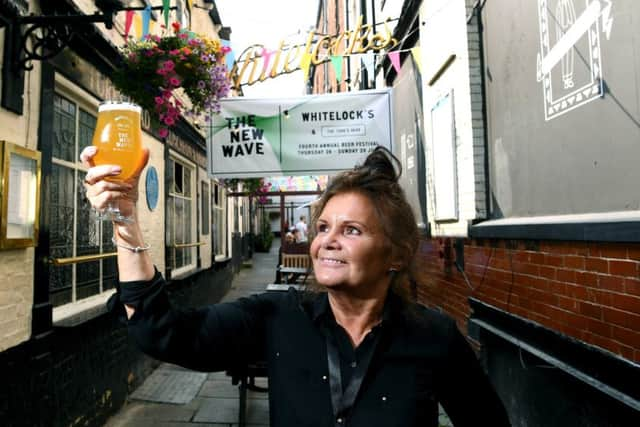Jayne Dowle: Raise a glass to changes in country's pub culture


However, it’s worth reminding ourselves that it’s 30 years this Wednesday since “all-day” licensing laws were introduced by Margaret Thatcher’s government to allow pubs to stay open without a break.
It would be another 17 years before Tony Blair spearheaded 24-hour drinking. Perhaps the least said about that the better. Still, this landmark 1988 legislation was the beginning of the end of the stringent restrictions put in place to control public drinking during war-time.
Advertisement
Hide AdAdvertisement
Hide AdMrs Thatcher was hardly known as a pillar of the permissive society, but she did believe in the freedom of the individual. She also supported the principles of business and was a firm advocate of law and order.


Despite some initial doubts over the upholding of both, the new legislation soon proved to have positive effects on society.
Police in Leeds, for instance, reported a dramatic and immediate fall in violent crime. Cases of assault and other offences went down by 87 per cent. Detailed statistics showed that there were 23 city centre assaults between 3pm and 5.30pm in the fortnight before the rule change and just three in the two weeks immediately after.
The police chief at the time said that it was too early to tell whether the new licensing laws would make a permanent impact. If he’s still with us, I wonder what he thinks now.
Advertisement
Hide AdAdvertisement
Hide AdSince pubs came out of the dark ages, they have changed beyond all recognition. I’m sure some older readers will still maintain that this is not necessarily a good thing, and that they preferred it when they could shut the door of the “snug” and sip their half of mild in peace.
In general however, this spirit of tolerance has benefitted us. It’s been great for tourism for a start. I was a student in Oxford in the mid-1980s so I’m old enough to remember American tourists wandering the streets in the afternoons asking if anywhere was open so they could sample a legendary pint of Old Peculiar. I’m sure it was a similar situation in York and other tourist spots in our own region.
In the summer of 1988, I worked in one of Oxford’s most famous pubs, The Turf Tavern, where luminaries such as J.R.R Tolkein and C.S. Lewis hung out. That was before my time. I might be qualified to remember colourful characters from my childhood staggering home from the working men’s club, but I’m not that old.
Anyway, at The Turf, we served food so we could already open all day. This meant lucrative 13-hour shifts for us, but the ongoing tussle between pubs with a restaurant – and those without – was a major argument in favour of the one-rule-for-all law.
Advertisement
Hide AdAdvertisement
Hide AdIt was but a short step from this to the inception of both the gastro-pub and the kind of family tavern which comes with an indoor playpark attached, otherwise known as the seventh circle of hell. Neither type of establishment might be to your taste, but you can’t argue that either have been bad for British business.
You might also argue that in freeing families from the obligation to cook every meal at home these new kinds of pubs contributed to the decline in wholesome eating and therefore led to the staggering rise in adult and child obesity. There is a point here.
However, in terms of sheer quality of life, it’s a winner. What would you prefer? The opportunity to pop out for Sunday “lunch” at 3pm or being forced to ingest the traditional British Sunday dish of dried-up beef and an array of soggy vegetablesdoing, doing so with every member of your family?
At first, Sundays stayed relatively sacred. Pubs were only allowed an extra hour in the afternoon, then had to close until evening. Gradually, as everyone except The Temperance Society began to appreciate their new freedoms, the laws relaxed.
Advertisement
Hide AdAdvertisement
Hide AdNot only did extended opening hours democratise drinking, they also helped to create a new balance of power between men and women. No longer were pubs mysterious places where ladies were only welcome in the lounge bar, and often then only grudgingly.
Suddenly they opened up. Snug walls came down and lavatories became sweet-scented. Children, who hitherto had been banished to the steps with a bottle of pop and a bag of crisps, were also allowed into the once hallowed bars.
And although thousands of pubs in England and Wales have closed for good over the last three decades, I think we are seeing a new dawn. Every thriving village has one at its heart. They’re home to community enterprises and fashionable micro-breweries and some offer top-class bed and breakfast accommodation and even serve afternoon tea. We should raise a glass to all of this.